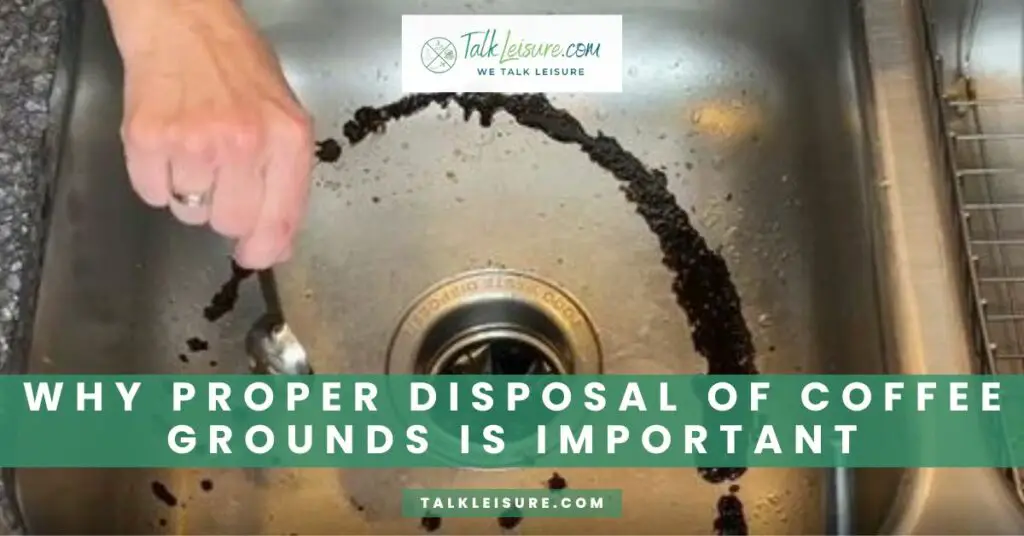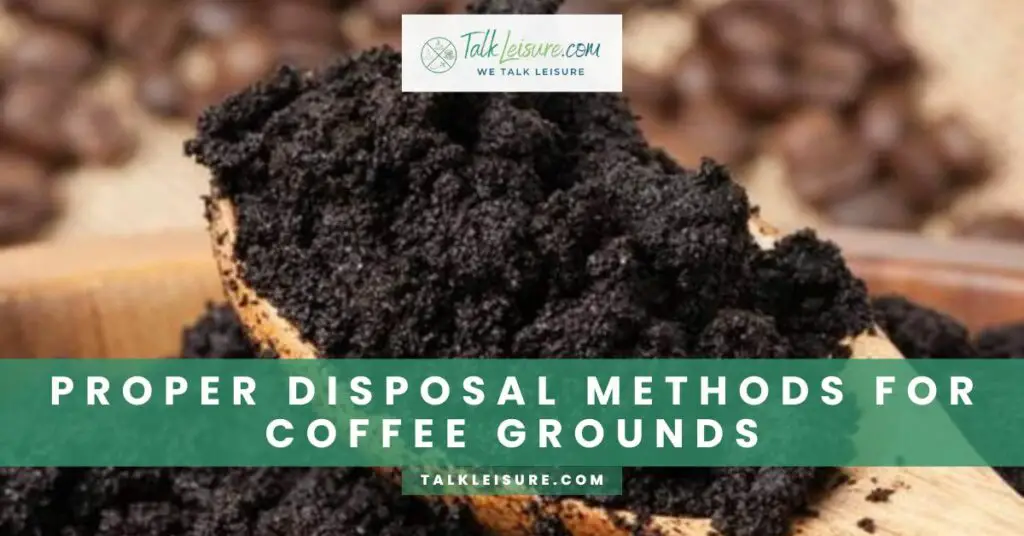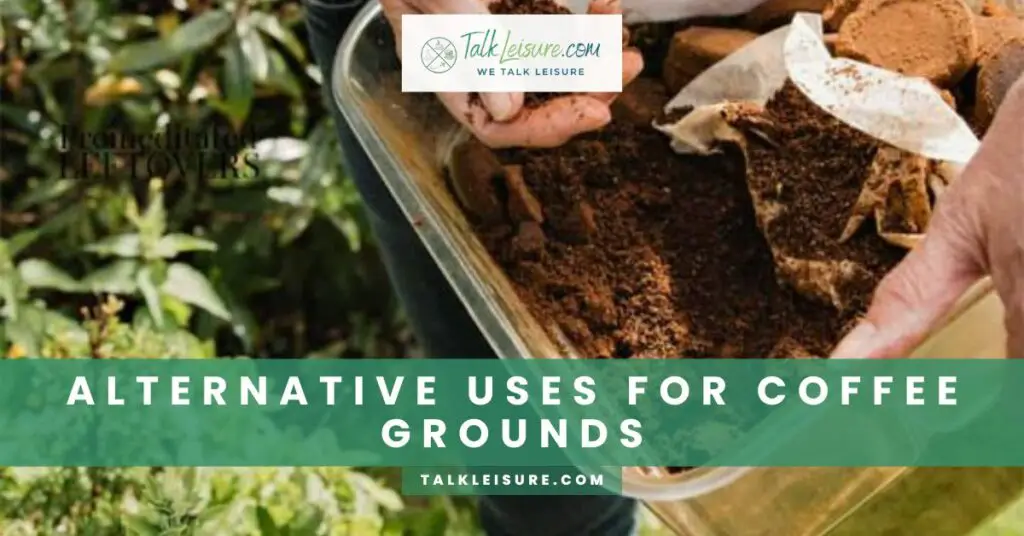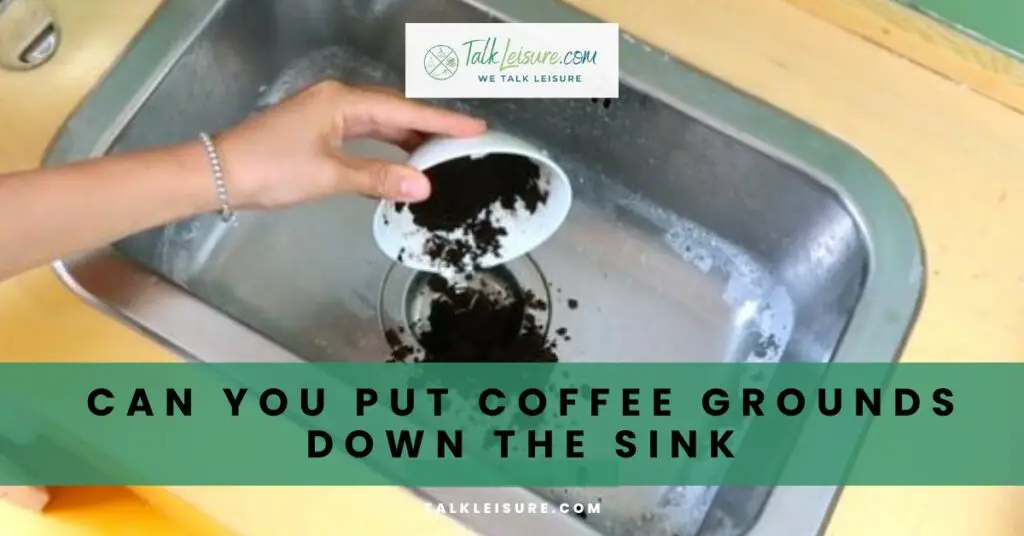Putting coffee grounds down the sink is generally not recommended.
Coffee grounds can accumulate and create blockages in your plumbing over time.
They don’t break down easily in water and can stick to the walls of pipes, potentially leading to clogs.
Instead of putting coffee grounds down the sink, it’s better to dispose of them in other ways.
Have you ever wondered what to do with the leftover coffee grounds after brewing a fresh cup of Joe?
It’s tempting to just dump them down the sink and wash them away, but is that the right thing to do?
In this article, we will explore whether you can put coffee grounds down the sink and why proper disposal is important.
Why Proper Disposal of Coffee Grounds is Important

As a coffee lover, it’s essential to understand the impact of coffee grounds on your plumbing system and the environment.
Here are a few reasons why disposing of coffee grounds properly is crucial
Plumbing issues: Coffee grounds are highly organic and tend to clump together when wet. This can lead to clogged drains and pipes, causing costly plumbing repairs.
Environmental concerns: When coffee grounds are sent down the sink, they can end up in wastewater treatment plants. These plants are not designed to filter out coffee grounds, and they can clog the system or impact the natural balance of aquatic ecosystems.
Sustainable practices: Properly disposing of coffee grounds promotes sustainability. Instead of throwing them away, consider composting. Coffee grounds make an excellent addition to compost piles, enriching the soil with nutrients and improving plant growth.
Pouring Your Grounds Down the Sink
The Potential Issues of Putting Coffee Grounds Down the Sink
As a coffee lover, you might be tempted to dispose of your coffee grounds down the sink.
However, this is not recommended due to potential issues it can cause.
1. Clogging the Drain
Coffee grounds can accumulate and form a thick sludge in your drains.
Over time, this can lead to clogs and blockages.
The grounds do not break down easily and can bind together, creating a sticky mess that restricts water flow.
2. Damaging the Plumbing System
The accumulation of coffee grounds in the pipes can also cause damage to your plumbing system.
It can create a barrier that hampers the flow of water and can even result in pipe corrosion or burst pipes.
3. Attracting Pests
Coffee grounds have a strong odor that can attract pests such as cockroaches and ants.
When disposed of down the sink, these grounds can linger in the pipes, providing a food source for pests and encouraging infestations.
To avoid these issues, it is recommended to dispose of coffee grounds in alternative ways.
You can compost them, use them as a natural fertilizer for plants, or simply throw them in the trash.
By doing so, you can ensure the longevity and functionality of your plumbing system while also reducing the risk of attracting unwanted pests.
Proper Disposal Methods for Coffee Grounds

1. Composting
One of the best ways to dispose of coffee grounds is through composting. Not only does this method help reduce waste, but it also benefits your garden or plants.
Benefits of Composting Coffee Grounds
Composting coffee grounds can provide several benefits, such as:
Nutrient-rich soil: Coffee grounds are packed with nitrogen and essential minerals that enrich the soil, promoting healthy plant growth.
Improved drainage: Adding coffee grounds to compost can enhance the soil’s water-holding capacity and improve drainage.
Organic matter: Coffee grounds contribute to the production of organic matter in the compost, which enhances soil structure and fertility.
How to Compost Coffee Grounds
To compost coffee grounds, follow these steps
Collect the coffee grounds: Save your used coffee grounds in a container or compost bin.
Add other organic matter: Mix the coffee grounds with other compostable materials like fruit and vegetable scraps, leaves, or grass clippings.
Aerate the compost: Regularly turn or mix the compost to ensure proper decomposition.
Use the compost: After a few months, your compost will be ready to use in your garden or potted plants.
2. Trash disposal
If composting is not an option for you, coffee grounds can be disposed of in the trash.
Using Coffee Grounds in the Trash
Before throwing coffee grounds in the trash, it’s important to
Dry them out: Leave the coffee grounds to dry before throwing them away. This helps prevent odors and reduces the risk of attracting pests.
Avoid large quantities: Dispose of coffee grounds in small amounts to prevent clogging in the garbage disposal.
Remember, coffee grounds should never be poured down the sink or flushed down the toilet as they can cause plumbing issues.
Alternative Uses for Coffee Grounds

As a coffee lover, you may be wondering if there are any creative ways to use those leftover coffee grounds instead of throwing them away.
The good news is that there are several alternative uses for coffee grounds that can benefit you and the environment.
1. Natural Cleaning Agent
Coffee grounds can be a great natural cleaning agent for various household tasks.
You can use them to scrub away stubborn stains on pots and pans, remove odors from your refrigerator, or even clean your kitchen sink.
The abrasive texture of the coffee grounds helps to break down grime and leaves surfaces looking clean and refreshed.
2. Gardening Fertilizer
Coffee grounds are a rich source of nutrients, making them an excellent natural fertilizer for your garden.
Sprinkling coffee grounds around your plants can provide them with a boost of nitrogen, potassium, and other essential minerals.
Additionally, coffee grounds can help improve the soil’s structure and attract beneficial worms and microbes that promote healthy plant growth.
Instead of putting coffee grounds down the sink, consider exploring these alternative uses.
Not only will you be reducing waste, but you’ll also be discovering new ways to make the most out of your morning cup of joe.
Remember to compost any leftover coffee grounds after use to further benefit your garden and the environment.
Does Coffee Stain Clothes – A Comprehensive Guide
Conclusion
I hope this article has shed some light on the issue of disposing of coffee grounds down the sink.
While it may seem like an easy solution, it’s best to avoid this practice for several reasons.
Clogging and plumbing issues: Coffee grounds can accumulate in the pipes and cause blockages, leading to costly plumbing repairs.
Environmental impact: Coffee grounds can contribute to sewage system problems and can also harm aquatic life if they end up in rivers or oceans.
Is It Actually Bad to Flush Coffee Grounds Down the Kitchen Sink?
Benefits of Proper Disposal and Alternative Uses for Coffee Grounds
Composting: Coffee grounds are a great addition to compost piles, as they add organic matter and nutrients to the soil.
Gardening: Coffee grounds can be used as fertilizer, pest repellent, or even in growing mushrooms.
Beauty and cleaning: Coffee grounds have exfoliating properties and can be used as a natural scrub for the skin.
They can also help absorb odors in the fridge or act as a cleaning agent for pots and pans.
It’s best to avoid putting coffee grounds down the sink to prevent clogs and environmental harm.
Instead, consider composting or finding alternative uses for coffee grounds to benefit your garden and household.
Frequently Asked Questions
Can you put coffee grounds down the sink?
Putting coffee grounds down the sink is generally not recommended.
Coffee grounds can accumulate in your plumbing system and cause blockages over time.
It’s better to dispose of them in a more suitable way.
How should coffee grounds be disposed of?
There are several eco-friendly options for coffee grounds disposal.
You can mix them with organic waste for composting, use them as fertilizer for plants, or throw them in the trash.
Composting not only benefits your garden but also reduces waste going to landfills.
Are there any creative uses for coffee grounds?
Absolutely!
Coffee grounds can be used for various purposes.
They can be employed as a natural exfoliant for the skin, used to repel pests in the garden, or even utilized as an odor absorber in the refrigerator.
Remember, it’s important to consider the impact of coffee grounds on the environment and choose a disposal method that aligns with sustainability practices.
How do you dissolve coffee grounds in a drain?
If you find yourself with coffee grounds in your drain, there are a few steps you can take to dissolve them.
First, run hot water down the drain to help soften and loosen the grounds.
You can also try pouring a mixture of vinegar and baking soda down the drain, which can help break down the coffee grounds.
Let it sit for a few minutes before running more hot water down to flush out the dissolved coffee grounds.
Another option is to use a commercial drain cleaner that is designed to break down organic matter.
Best Wishes!












